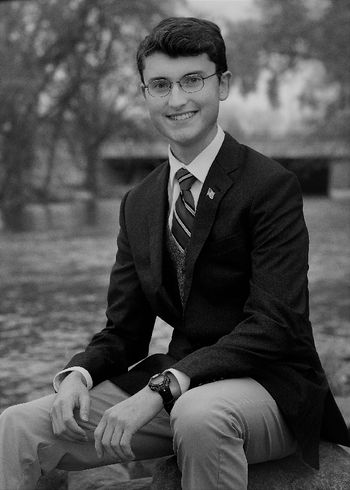Speaker at Christian university compares illegal immigrants to Biblical Israelites going to “Promised Land”
A central theme of Arteaga’s speech was “La Lucha,” or, “The Struggle” of Latin Americans, especially regarding DACA and mass migration: “You haven’t made it until you’re all across the river.”
Pr. Manny Arteaga gave a speech at a semi-required Andrews University event comparing Latin Americans to the Biblical Hebrews going to the “Promised Land.”
Arteaga shared his story of participating in an LA immigration march, stating, “God expects us to walk with those in the struggle.”
In commemoration of Hispanic Heritage Month, a speaker at a semi-required university chapel event at Andrews University made calls for faith-based political activism in favor of looser immigration policies like DACA. He also compared Latin Americans coming to the U.S. to the children of Israel in the Bible who crossed the Jordan River into the Promised Land of Canaan.
The speaker, Manny Arteaga, is the lead pastor of Kalēo Seventh-day Adventist Church in Arcadia, California. Students were not required to attend the Oct. 10 speech but showing up did count toward the minimum number of co-curricular credits required of Andrews University students each semester. If students do not meet the requirement, then they get fined for each credit missing. If students attend less than 60 percent of the requirement, then they can be placed on “co-curricular probation.”
Arteaga’s full speech is published on Andrews University’s YouTube page.
Drawing on the story found in the Old Testament books of Exodus and Joshua, which tell of the journey of the Israelites from Egypt, through the wilderness, and to Canaan, “the Promised Land,” Arteaga drew parallels between Hebrews and Hispanics, saying, “We know la lucha [the struggle]. And if we look at different theologies, different liberation theologies even, we are going to see how many theologians, many people who study the struggle of the Latin American through the lens of the Gospel will equate our journey, our feat, and will put it parallel to the story of the Exodus,” said Arteaga, adding “we are always pursuing a Promised Land that never seems to arrive.”
He continued by noting how tribes of Israel led the way across the Jordan River, despite having their settlements established east of it. The challenge for Andrews University students, he said, was that despite having the comforts which are available in the U.S., action should be taken to aid those who are still in “la lucha.” He continued, “But God said [to the two and a half tribes], “No-no-no-no-no. I know you’re already settled. I know you’re already set. I know you’re already established. I know you’ve got your ranch. I know you’ve got your animals. I know you’ve got your plot of land. I know you’ve got your papers.”
After pausing for dramatic effect, Arteaga added, “But the truth is that you’ve got some family who’s still in the river.”
The lesson continued, “You haven’t made it until you’re all across the river. You see, you haven’t really arrived until you’re all across the river. You haven’t really made it. You’re still in the wilderness until everyone is across the Jordan [River].”
The speech then shifted to current events, with Arteaga telling the story of his motivation for his participation in a protest event, explaining, “Some years ago, I had the honor and privilege to go to an immigration rally in downtown L.A. I went with a group of pastors who were out marching [in] the streets. It was when DACA was kind of on the fence. You know, there was a lot of turmoil. And, if it’s okay with you, I went with other preachers to pray and march, ‘cause I believe in praying with my lips but also believe in praying with my feet from time to time.”
“I thought it was very powerful and impactful,” student Vanessa Rugambo told Campus Reform. “He directed it in a different way and I liked that about the talk. He reminded us that to get to the ‘Promised Land’ we need to work together.”
On the DACA program, Rugambo said, “It was created for a good cause, but I think it’s a little inefficient and that they should revise it because I don’t think it’s helpful for the immigrants to constantly keep renewing their status in the country after every two years.”
Campus Reform reached out to Andrews University and Ortega for comment but did not receive a response in time for publication.
Follow the author of this article on Twitter:@Jonathan_M_Jr

